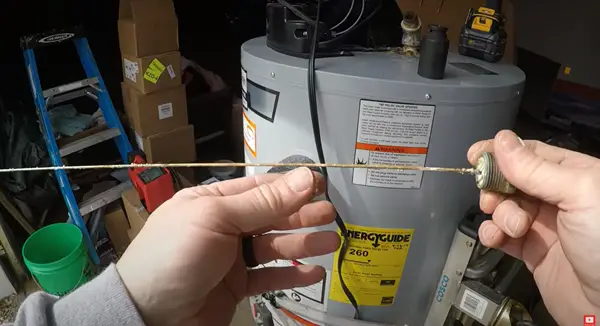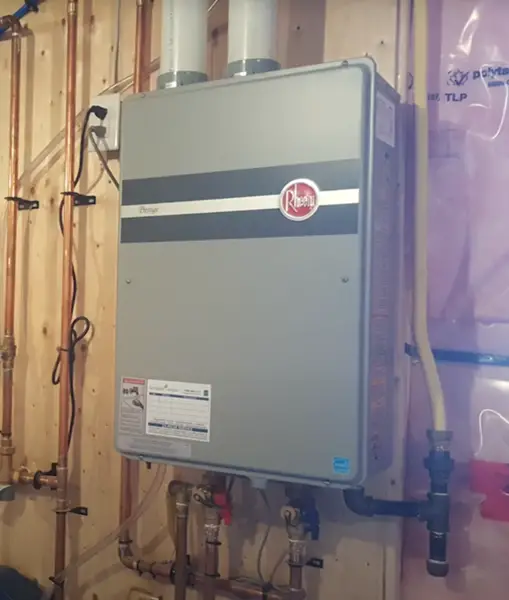Renovating your home is an exciting opportunity to upgrade and improve the spaces you use every day. While many homeowners focus on visible areas like the kitchen, bathroom, and living room, it’s also an ideal time to consider upgrading essential but often overlooked appliances, such as your water heater.
This may not seem like the most glamorous part of a home renovation. Still, you can save money if you decide to replace your water heater, which can improve energy efficiency and prevent potential future headaches.
Table of Contents
Understanding the Lifespan of Your Water Heater
Water heaters are essential water products for your household, but they don’t last forever. Most traditional tank water heaters have a lifespan of about 8 to 12 years, while tankless models can last up to 20 years. If your water heater is nearing the end of its life or is already over a decade old, your home renovation may be the perfect time to upgrade it.
As your water heater ages, it becomes less efficient, leading to higher energy bills and reduced performance. Replacing it during your renovation helps ensure that you won’t have to tear up freshly completed work down the line to deal with a malfunctioning water heater.
Signs It’s Time to Replace Your Water Heater
There are several warning signs that your water heater may need replacing. If you’ve noticed rusty water, strange noises from the tank, or a decreased hot water supply, your water heater could be on its last legs.
Sediment buildup in the tank can cause these issues and leaks, which indicate that your unit is past its prime. A leaking water heater can also cause significant damage to your home, so catching this early can save you from costly water damage repairs in the future.

Considering Energy Efficiency in a New Water Heater
During a home renovation, you likely want to upgrade your appliances for better performance and energy efficiency, and your water heater should be no exception. Older models use more energy to heat water, which directly impacts your utility bills.
Modern water heaters, particularly tankless models, are far more energy-efficient. Tankless water heaters heat water on demand, eliminating the need for a large storage tank and reducing energy usage. This means you’ll only heat the water you use, resulting in lower energy bills and a reduced environmental footprint.
- External digital thermostatic control with LED display (+/1 degree accuracy)
- Most advanced self-modulation, adjust power to meet hot water demand
- Durable Copper immersion two heating elements, field Serviceable. Flow Rate- up to 4.4 GPM
- Simple installation – bottom 3/4 inch NPT water connections
- Threaded for easy replacement, simple installation, digital temperature display
Types of Water Heaters to Consider
When deciding to replace your water heater, you have several options. Traditional tank water heaters are still widely available and offer affordable installation costs. However, consider a tankless water heater if energy efficiency and long-term savings are a priority.
In addition to tankless models, solar, and heat pump water heaters are also great options for homeowners looking to reduce their energy consumption.
Solar water heaters use energy from the sun to heat water, and heat pump water heaters pull heat from the air to warm the water in the tank. Both systems can significantly lower your energy bills over time, though they come with a higher upfront cost.
Planning for Installation During Renovation
Replacing your water heater during a renovation may seem like an extra step, but it can streamline the process. When walls are already being opened and plumbing is adjusted, installing a new water heater becomes much more straightforward.
You can coordinate with your contractor to ensure the installation is completed conveniently during the renovation, minimizing disruptions to your project timeline.
Additionally, replacing your water heater during a renovation allows you to optimize its location. You may be able to place it in a more efficient spot, freeing up space and improving your home’s layout.
If you upgrade to a tankless model, you’ll need less space for installation, giving you more room to work with during the renovation.

Water Heater Maintenance and Longevity
Once you’ve installed a new water heater, regular maintenance is crucial to extending its lifespan and keeping it running efficiently.
Flushing the tank regularly to remove sediment, inspecting the anode rod for corrosion, and scheduling annual professional maintenance will ensure your water heater performs at its best.
If you’re opting for a tankless model, maintenance is mandatory. It’s essential to follow manufacturer guidelines for descaling and other care.
Regular upkeep will protect your investment and ensure you get the most out of your new water heater.
Impact on Home Value
A modern, efficient water heater can also positively affect your home’s value, especially if you plan to sell. Potential buyers often look for updated appliances and energy-efficient features, and a new water heater could be a selling point.
Investing in a reliable and efficient model now can give you peace of mind and provide future returns.
Timing Your Replacement Right
When renovating, timing is everything. Replacing your water heater before it fails can save you from an inconvenient and costly emergency replacement.
Integrating a water heater replacement is a smart move if you’re planning to upgrade your plumbing fixtures or rework your home’s layout.
This proactive approach ensures that your renovation and the systems behind your walls will remain functional and efficient for years.
Storage Solutions During Renovations
While undergoing major home renovations, you might need to temporarily relocate some belongings to clear space and keep things organized. Storage services become incredibly convenient in such situations, especially for protecting larger items from dust and damage.
If you’re in the Miami area, companies like promoversmiami.com offer flexible storage options to accommodate your needs during renovation, giving you peace of mind while focusing on your home improvements.
Benefits of Future-Proofing Your Home
When you replace your water heater during a renovation, you’re future-proofing your home. Upgrading to an energy-efficient model ensures that your home will run smoothly, saving money on utility bills and preventing any unexpected breakdowns.
It’s a practical way to improve your home’s functionality while reducing environmental impact.
In the long run, replacing your water heater during a renovation can add to the overall success of your project. It’s an investment that will make your home more comfortable, increase its value, and prevent later disruptions. While it may not be the most visible upgrade, the peace of mind and savings you’ll gain are well worth the effort.
Conclusion
As you plan your home renovation, don’t overlook the importance of your water heater. If your current model is aging, inefficient, or unreliable, now is the perfect time to consider replacing it.
Consider getting a gas powered tankless water heater.
A new water heater will improve your home’s energy efficiency, enhance your day-to-day comfort, and protect your investment in the long term. A well-timed replacement during your renovation can save you money, reduce your environmental impact, and prevent future headaches.
So, is it time to replace your water heater during your home renovation? For many homeowners, the answer is a clear yes.
Last update on 2025-08-31 / Affiliate links / Images from Amazon Product Advertising API
